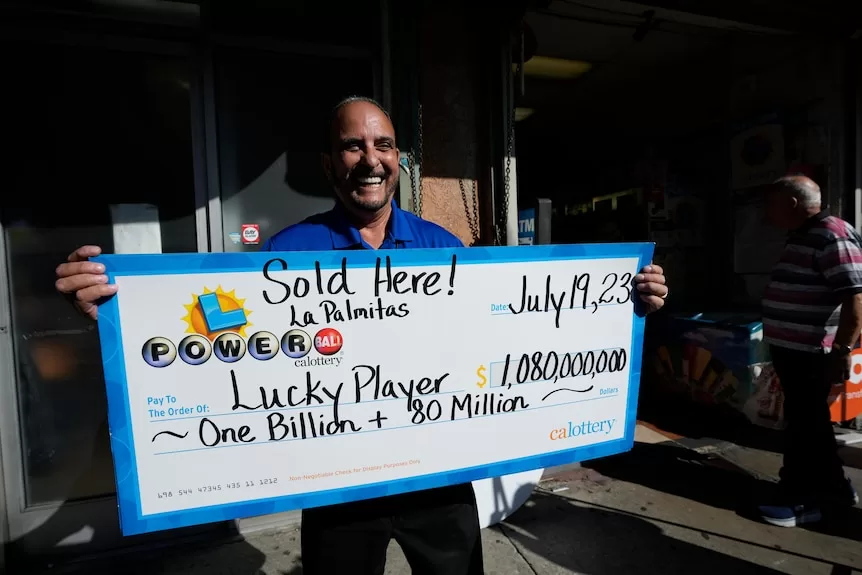Ever daydreamed about what you would do if you won big lotto money?
Your mind might immediately go to booking a chopper or getting an extremely indulgent croissant, but what about taxes?
Here’s a quick reality check.
Do you get taxed on prizes and awards in Australia?
It depends.
The Australian Taxation Office (ATO) says people must declare certain prizes and awards in their tax return.
If the prize draw or lottery is run by your bank, building society, credit union or investment body then you have to declare the value of any prizes or benefits you receive — this could be cash, but also holidays, cars or interest-free loans.
But you don’t have to declare your winnings from what the ATO calls “ordinary lotteries” — think lotto draws, raffles or the meat tray at your local pub.
You also don’t have to declare prizes won on game shows “unless you receive regular appearance fees or game-show winnings”, the ATO says.
But there’s a catch
Even if the prize you win isn’t taxable, the money you earn from it is.
Let’s say you win a house and decide the open-plan layout isn’t for you, so you sell it.
You’d have to declare any capital gains you make in your tax return.
Or, as another example, let’s say you win a big lump sum of money and you put it in the bank.
You’d have to declare any interest you earned from that money in your tax return.
It’s different in the US
Last month, someone in the US won a jackpot of $US1.08 billion ($1.6 billion).
In the US, lottery winnings are considered taxable income, so winners a subjected to an up-front federal tax on their winnings.
And, depending on where a winner is, they may have to pay state taxes on top of that.
The odds are minuscule
The chances of winning big in lotteries are very, very slim.
Take, for example, last month’s billion-dollar US jackpot — the odds of picking the winning numbers were one in 292.2 million.
Earlier this month, a group of mathematicians at The University of Manchester tried to work out how many lottery tickets a person would need to buy to guarantee they would win something.
They based their experiment on a UK lottery that draws six random numbers from one to 59, which means there are more than 45 million possible draws.
Researchers found that someone would need to buy at least 27 tickets to guarantee a win.
But a win doesn’t mean becoming a millionaire.
“Although guaranteed a win, the researchers say that the chances of making a profit are very unlikely and shouldn’t be used as a reason to gamble,” a press release from the university says.
“When putting the theory to the test in the lottery draw on 1 July 2023; the researchers matched just two balls on three of the tickets.
“The reward being three lucky dip tries on a subsequent lottery, each of which came to nothing.”
Scammers prey on lotto daydreamers
The National Anti-Scam Centre warns Australians to be wary of notifications about prize winnings.
Victims might be sent a letter, email, text message or message on social media saying they’ve won a prize in a fake lottery.
These scams work by asking victims to pay a fee or a tax so they can claim their prize or winnings — but the prize is never delivered.
There are also scratchie scams, where scammers mail a fake scratch-it card to people that promises a big prize.
However, they say there’s a condition that the “winner” pays a fee to either claim the prize, enter the competition or become a customer.
They might also ask you for information about yourself, including your bank details.
Never reveal personal details, give out your bank details or read out the numbers on your bank card to someone you don’t know or trust.
“Don’t pay a fee to collect winnings or a prize,” the National Anti-Scam Centre says.
“Legitimate lotteries don’t ask you to do this.”
